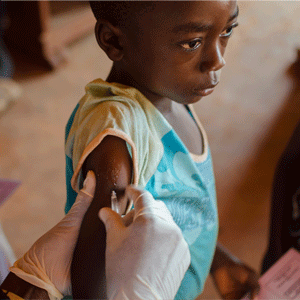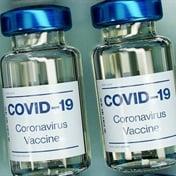
Five diseases with the potential to become epidemics in 2016 are being highlighted by international aid organisation Médecins Sans Frontières/Doctors Without Borders (MSF), as the World Health Organisation’s executive board meets in Geneva.
Without proper investment in preventing and responding to outbreaks of cholera, malaria, measles, meningitis and a group of often-overlooked diseases spread by viruses and parasites, they are likely to pose an ever greater threat to people’s health in the year ahead.
Current strategies to prevent major outbreaks of disease show only limited success. Epidemics continue to occur, often with devastating consequences for some less developed countries.
Epidemics open up cracks in national health systems, exhaust available resources and, in many cases, kill large numbers of people.
“We know that thousands of lives will be at risk in the year to come, although the means exist to prevent these deaths,” says Dr Monica Rull, operational health advisor for MSF. “Epidemics of cholera, malaria, measles and meningitis take place every year, incapacitating and killing many – and this needs to stop.
At the same time, the threat posed by emerging and re-emerging virus and parasite-spread diseases – such as dengue fever, Zika, Ebola and Kala Azar – needs to be faced.”
Along with prevention measures, resources must be provided to build effective emergency response systems. This must be part of a broader effort to help countries strengthen their health infrastructure and capabilities and provide health education to local communities.
Rapid alert mechanisms must be accompanied by rapid response activities once a disease breaks out, with free and quality medical care provided to all those affected.
Why is MSF concerned:
MSF is concerned that current strategies only show very little success - putting many people at risk of sickness or death if they are either not protected or receive treatment in time.
Further, in many developing countries, a number of natural disasters and conflicts have weakened already fragile health systems, creating the perfect environment for easily preventable outbreaks.
MSF has seen this first hand in Central African Republic, for example, where the political and military turmoil since 2013 has meant that most children have missed out on key vaccinations. Between 2012 and 2014, the number of children vaccinated against measles in CAR fell from 64% to 25%.
To this end, MSF recently embarked on a massive vaccination campaign in the Central African Republic (CAR) targeting 25% of all children under 5 years old (about 220 000 children) to receive up to 9 antigens against key childhood killer and vaccine-preventable diseases like measles. Read more about the campaign, which continues into 2016, here.
“If we don’t make significant changes, we will be doomed to repeat past mistakes, and must take responsibility for the consequences,” says Dr Monica Rull, the MSF operational health advisor.
Read more:
Call to action: You can help end SA’s TB epidemic
Limpopo reports rash of malaria cases




 Publications
Publications
 Partners
Partners











